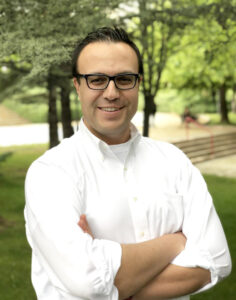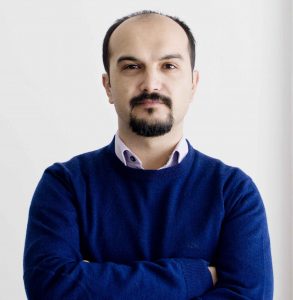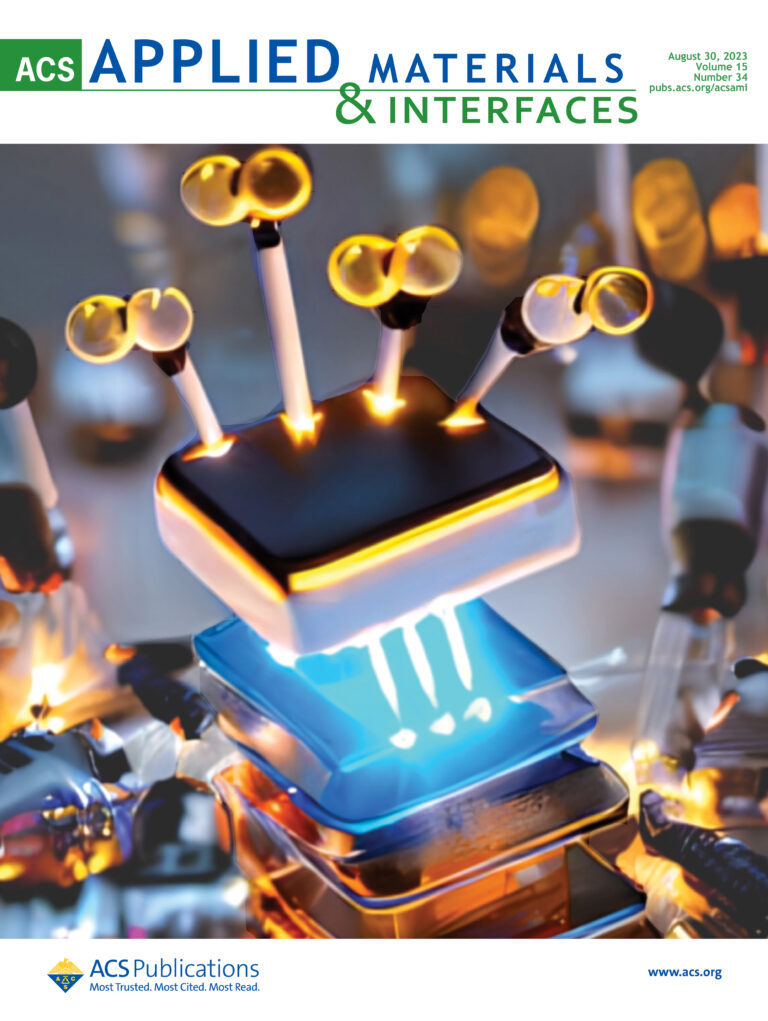Özensoy and Karadaş Research Groups Publish on the Cover of ACS Applied Materials & Interfaces
Unlike conventional electrochemical charge storage systems, tritium-based betavoltaic battery (BVB) can be utilized as long-lasting electron sources that can be operated within a wide temperature window and under challenging operational conditions with a prospect to substitute some of the existing low-power charge storage technologies exploited in pacemakers, underwater systems, communication, memory electronics, and aerospace applications.
Metal tritides prepared by storing tritium (13T) in metals can be exploited as electron sources in BVB applications since 13T is a well-known β–particle (i.e., electron) emitter (13T → 23He + e– + ve–, where ve– represents an electron antineutrino). Nanofabrication of 13T-based BVB devices requires the interfacing of the β-particle emitting material with the remaining multilayered semiconductor architecture, where the β-particle emitter can be in the form of a metal-tritide ultra-thin film.
In the current work, Özensoy and Karadaş Research Group demonstrate that the deuterium uptake of Ti thin films decorated with Pd ultra-thin film overlayers can be systematically enhanced. Furthermore, we examine the function of different metal sites (Pd vs Ti) in the ultra-thin film system as well as their chemical and electronic nature, and the relative thermal stabilities of the various forms of stored D species on/in the films which are critical parameters dictating the overall performance, longevity, and operational thermal limits of BVB devices. Finally, we illustrate that our findings on deuterium uptake could be successfully extended to tritium storage of Ti/Pd thin film systems, revealing promising β-emitting performances in realistic BVB devices.
If you are interested in further details of the recent work of Özensoy and Karadaş Research Group, you might check their published article on ACS Applied Materials & Interfaces by clicking here.


